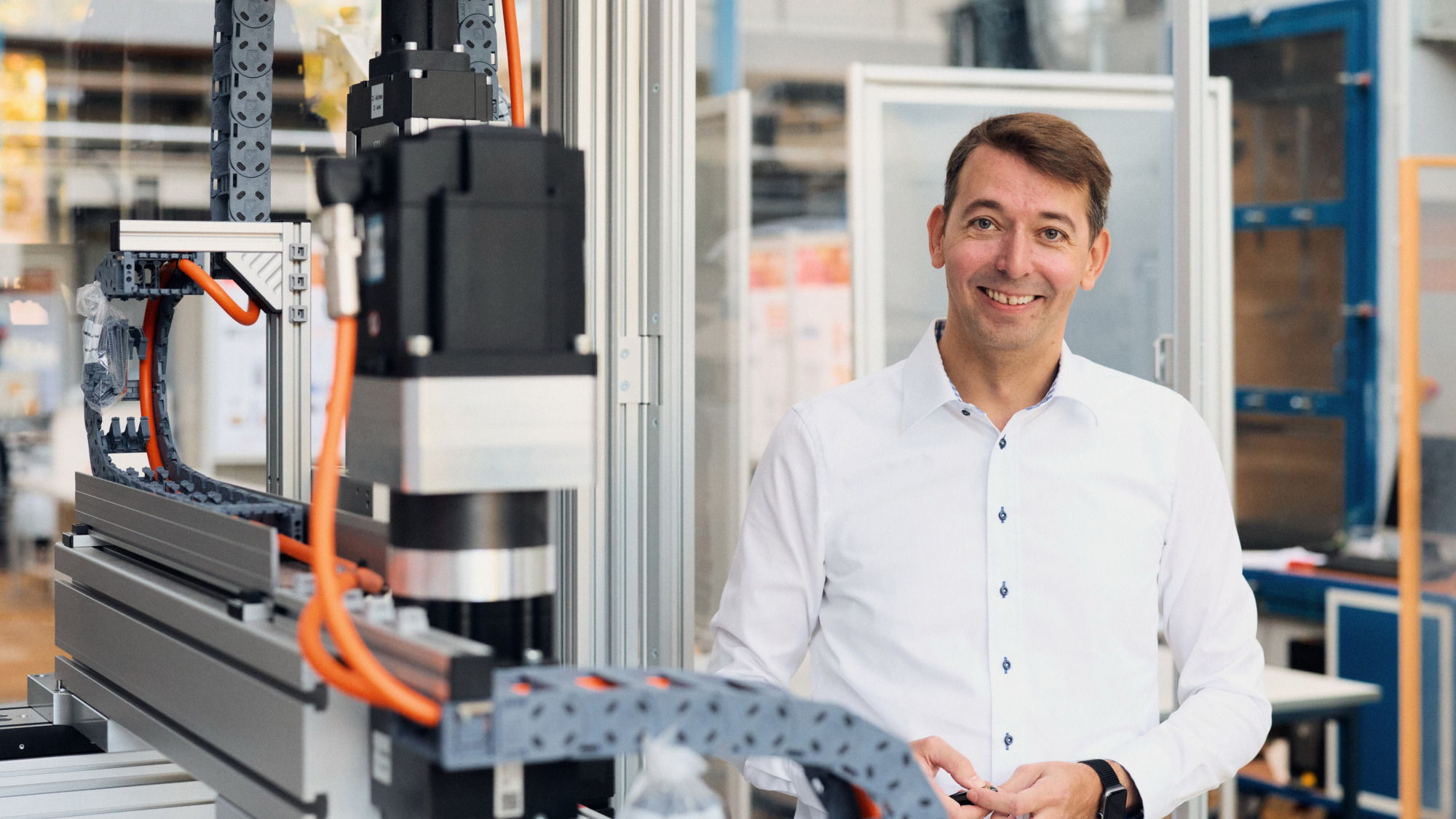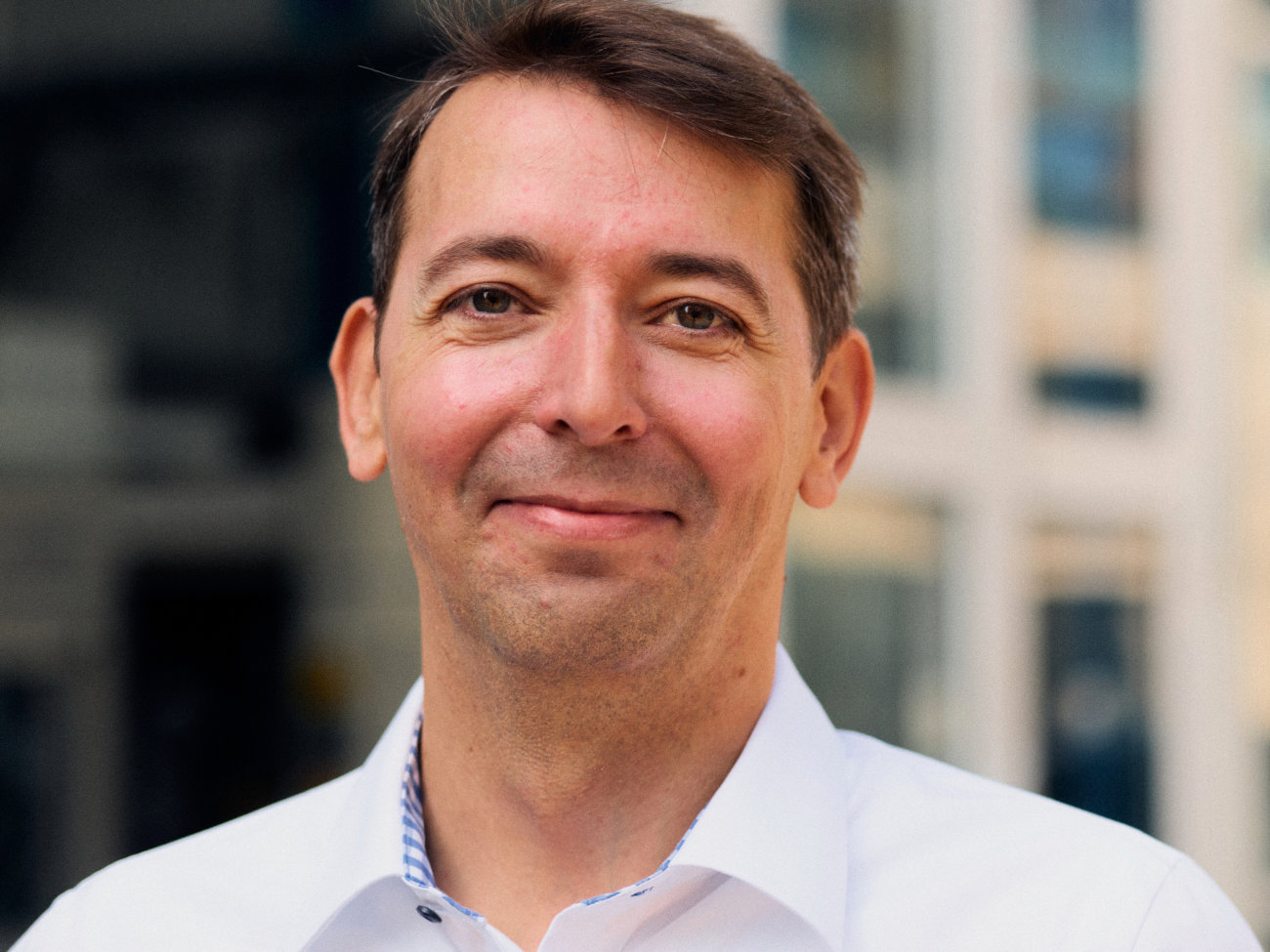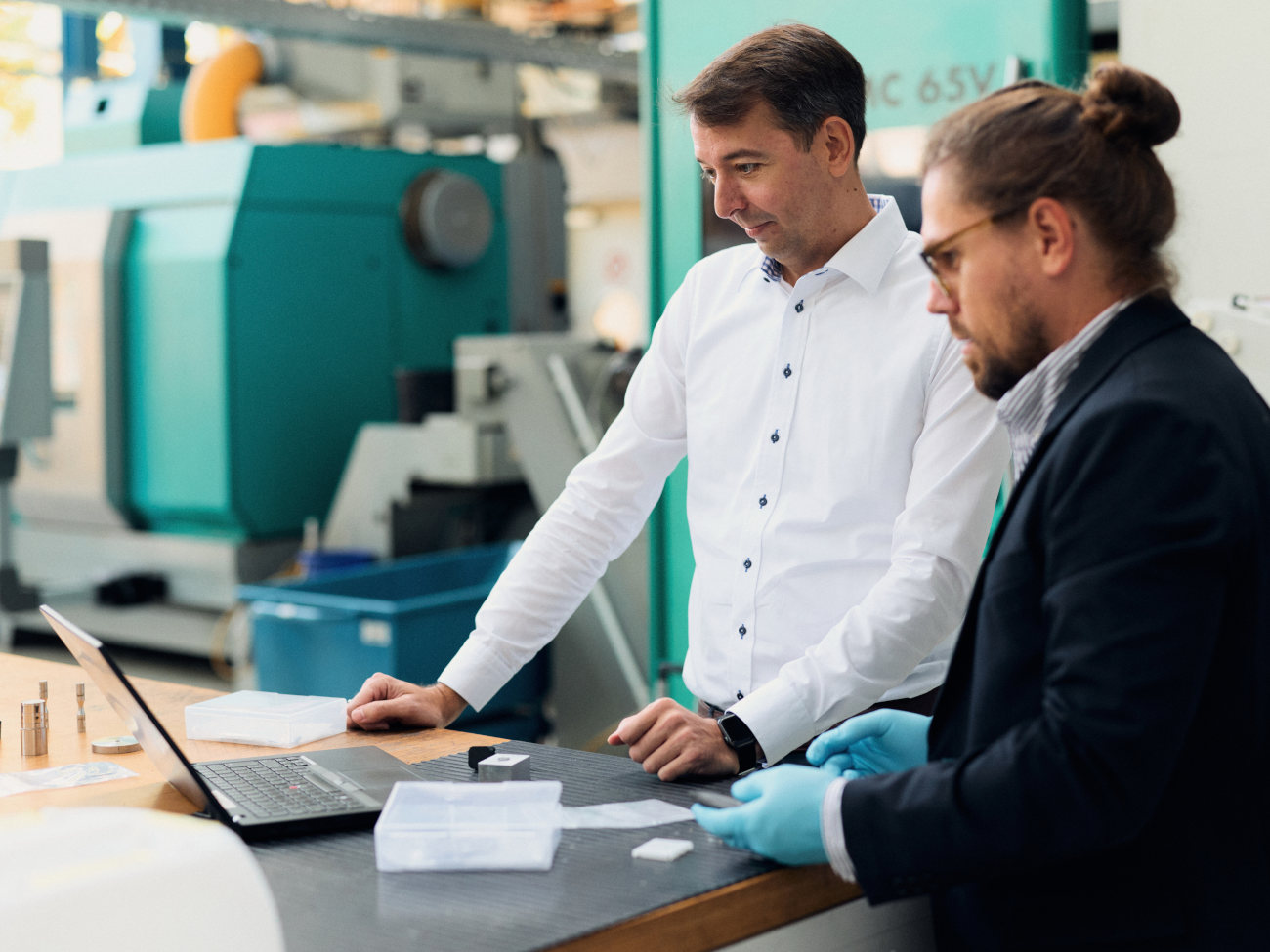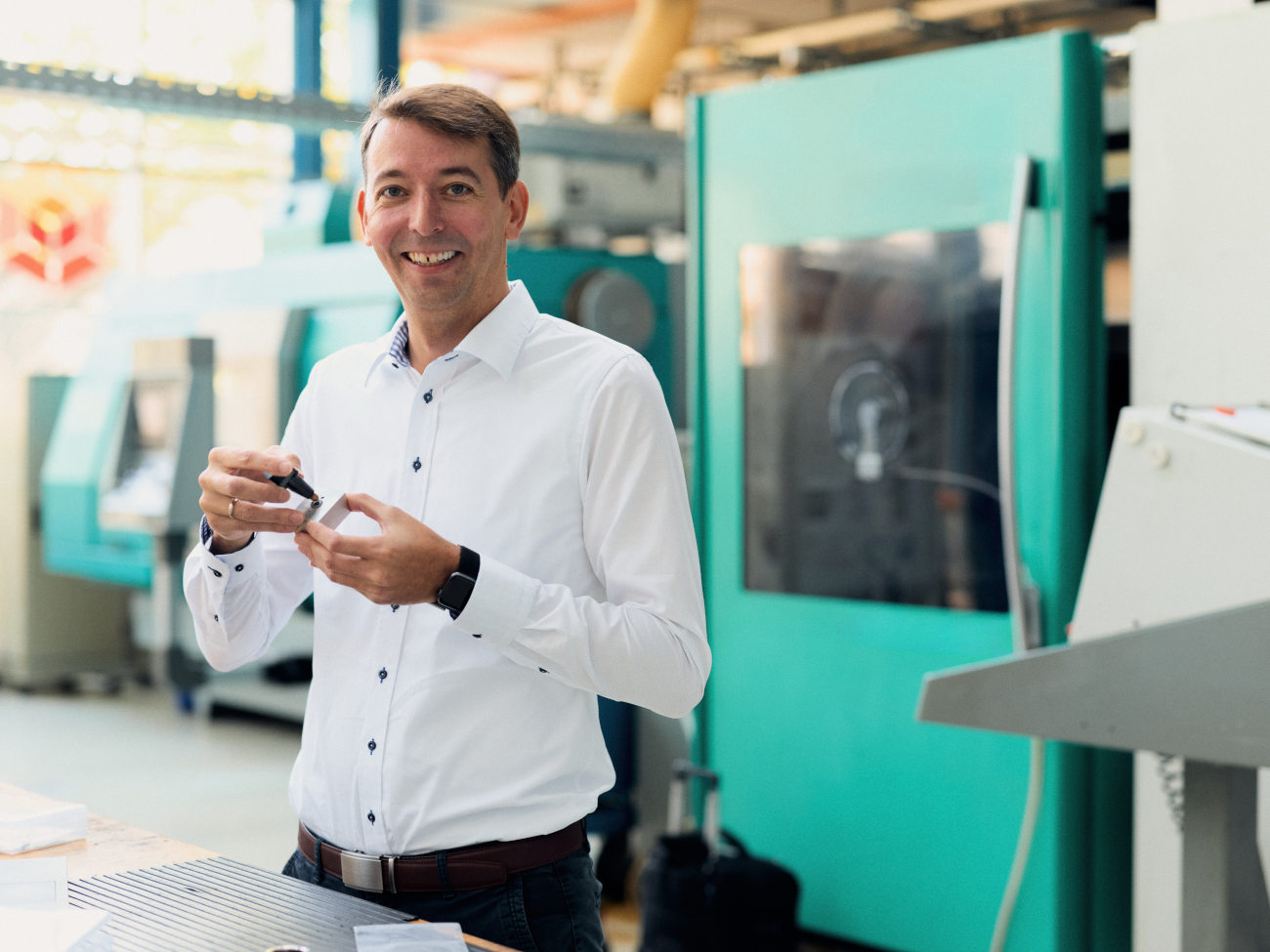
© Patrick Pollmeier / Universität Bremen
Materials Research for Earth and Mars: How Daniel Meyer Makes Components More Resilient
Daniel Meyer found his way from biology to production engineering by chance. Today, he researches how to improve metal surfaces through specialized processing – knowledge that is now becoming important for the University of Bremen’s Martian research.
From biology major to metalworking expert: Daniel Meyer uses innovative methods to optimize the properties of components – knowledge that is in demand not only in industry, but also in Martian research at the University of Bremen.
Daniel Meyer came to Bremen to study biology. As luck would have it, he found a job as a student assistant at the Leibniz Institute for Materials Engineering – IWT. “One of my tasks was to examine the cooling lubricants of the many machine tools – milky emulsions used in machining processes. The biology student’s expertise was needed to check the condition of the lubricants.
He soon became interested in the other processes at the institute and at the Faculty of Production Engineering. He gained insight into various processes such as turning, milling, drilling, and grinding, and was introduced to new technical equipment and exciting research. But first he completed his biology degree and then worked in cancer research at the Center for Human Genetics at the University of Bremen. In 2006, he joined the Leibniz-IWT as a research assistant.
From Biology Major to Engineer
It was there that Daniel Meyer was trained as an engineer by his boss at the time, Professor Ekkard Brinksmeier. For Meyer, it was a 180-degree turn. “An unusual path – as if a 100-meter runner suddenly switches to pole vaulting,” he states. While biology involves working with chemicals and cells in the laboratory, Meyer spent the five years leading up to his doctorate working intensively on various production processes.

© Patrick Pollmeier / Universität Bremen
One example of this was precision drilling, which is particularly important in aviation. “In an aircraft, a lot of holes have to be drilled very accurately,” explains Meyer. The customers for such research projects were often large companies such as Airbus or their suppliers. In addition to drilling, he also worked with milling, turning, and grinding tools.
Optimization of Material Properties
At Leibniz-IWT, the focus is usually on processing materials such as steel, titanium, or nickel-based alloys. “When we shape the materials by turning, milling, or drilling, we also change their properties,” explains Meyer. Some of these changes are visible, such as rough or smooth surfaces. But there are also invisible effects. The surfaces can become harder as a result of the machining and therefore last longer when subjected to stress, such as vibration. Meyer has studied these complex relationships in detail.
He is particularly proud of the fact that he was able to contribute his expertise in biology to his habilitation. This is because cooling lubricants, which play an important role in manufacturing, influence the machining processes and thus the properties of the workpieces. This special focus is also reflected in the title of his Ph.D. thesis: “Production-related modifications in the near-surface area – consequences of the interaction of process and material.” A unique topic that no one had ever dealt with in such depth before.

© Patrick Pollmeier / Universität Bremen
An example illustrates Daniel Meyer’s research by showing how material properties change when processed. If you bend a paperclip back and forth several times, the bending point becomes hot, and at some point the paperclip will break at that point. “This means we have changed the material properties through deformation, because where the material breaks, it has previously solidified and become fatigued,” explains Meyer. Particularly in safety-relevant areas, it is important that components have a long service life and do not break prematurely. Through targeted processing, certain properties can be introduced into the material to extend its lifespan – for example, greater hardness, a smoother surface, or optimized residual compressive stress.
Residual Stresses and Their Significance
A simple example of residual stresses can be observed in the kitchen. When carrots are cut lengthwise, the thin sticks often take on a slightly curved shape – similar to bananas. “This is a result of residual stresses,” explains Meyer. “This kind of stress is also present in metals, and we can influence it in a targeted way.” This means that the properties of the materials can be decisively influenced at the material processing stage in order to optimize them for the challenges of their intended applications. “By using various manufacturing processes to influence the outermost 50 micrometres of a metallic surface – roughly the diameter of a human hair – we can make it significantly more resistant.”
The results of his research may prove particularly important in industries where the longevity of components is crucial – for example, wind energy. “When a wind turbine rotates, countless components are subjected to repeated vibrations – 24 hours a day, 365 days a year,” he explains. In a car engine, several thousand revolutions per minute mean several thousand load cases. And in aviation, components are subjected to extreme loads during take-off and landing. In all these areas, the manufacturing processes are crucial to ensuring that the components used can be relied upon to function flawlessly when in use.
New Challenges on Mars
Daniel Meyer’s interdisciplinary knowledge is now very useful to him in the “Humans on Mars” research initiative. He is involved in “The Martian Perspective: A Scarcity-Driven Engineering Paradigm” Cluster of Excellence at the University of Bremen. The interdisciplinary academic team benefits from the particular expertise of the biologist and production engineer, and their research could now help to secure Excellence status for the University of Bremen once again.
“Imagine people staying on Mars for a longer period of time. They won’t be able to take everything they need with them,” Daniel Meyer states. “There won’t be any high bay warehouses with all kinds of spare parts. Supplies will take two years to get to Mars.” If something needs to be replaced quickly, the Martians will have to manufacture the missing part themselves.

© Patrick Pollmeier / Universität Bremen
The research alliance has already developed a number of promising methods for making do with the resources that are available on Mars. “There is not much up there. So the question is: How do we turn Martian dust into raw materials?” When it comes to using these raw materials to manufacture components, Daniel Meyer’s expertise comes into play. He is in charge of the cluster’s “Research Area Processing” and he knows, “The raw materials on Mars will be contaminated. There will be no completely pure materials like on Earth.”
The task of his research area is to develop, adapt, and control processes in such a way that functional components can be manufactured from the raw materials. “We will have to adapt processes to the conditions there – and find solutions that will work on Mars.” The great thing about this research is that we also learn a lot about how to use it on Earth. We might not have learnt that without the Martian initiative. “One example is recycling. We will have to recycle more and more materials in the future. This will result in an increasing amount of impure materials. We are already researching in our Mars project how we can continue to use these materials efficiently.”